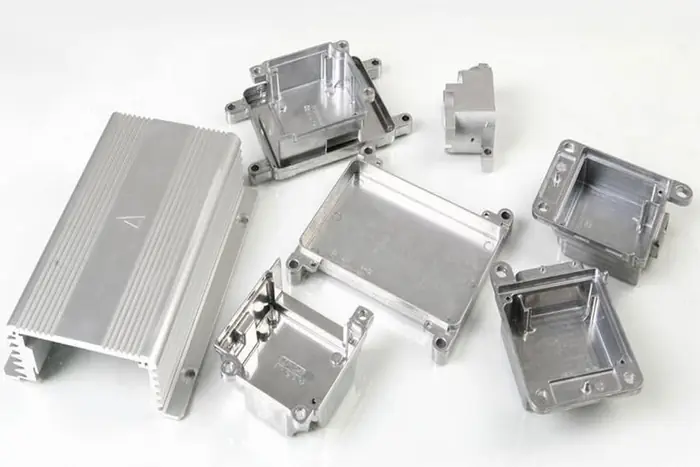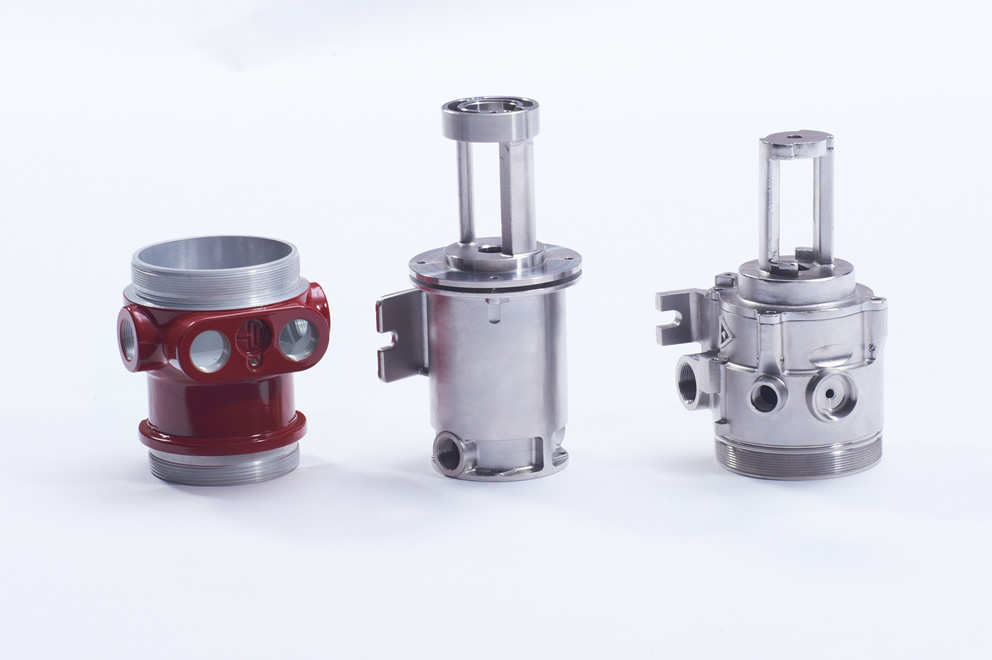The Impact of Ingenious Factory Solutions on Lasting Manufacturing Practices
Ingenious factory services play a crucial function beforehand lasting manufacturing practices. By integrating recycling modern technologies and energy-efficient procedures, these solutions substantially decrease ecological influence. Factories can recover useful materials, consequently lowering reliance on virgin resources. As automation and lean production principles gain grip, production effectiveness is optimized. Nevertheless, the full level of these advancements and their ramifications for the future of manufacturing continue to be to be discovered.
The Function of Advanced Recycling Technologies in Foundries
Advanced reusing modern technologies are changing the landscape of foundries by boosting product recuperation and reducing waste. These ingenious procedures permit shops to redeem useful steels and materials from scrap, lessening dependence on virgin sources. By incorporating sophisticated sorting, shredding, and melting techniques, factories can effectively extract usable materials from thrown out products, therefore advertising a circular economic situation.
Additionally, these innovations sustain the production of high-grade alloys and parts, ensuring that recycled materials meet strict sector criteria (Aluminum Casting Company). Therefore, shops are not just boosting their material performance yet likewise decreasing the ecological influence connected with conventional manufacturing methods
This change in the direction of advanced recycling not just bolsters economic practicality for shops but likewise lines up with worldwide sustainability goals. Ultimately, the incorporation of these technologies stands for a considerable action onward in the mission for sustainable manufacturing methods within the foundry field.
Power Efficiency: Decreasing Consumption in Production Processes
Energy effectiveness in producing processes is essential for sustainable operations. Approaches such as procedure optimization methods, renewable resource integration, and waste warm healing play essential functions in decreasing energy intake. By concentrating on these locations, producers can significantly decrease their environmental effect while boosting efficiency.
Process Optimization Techniques
A significant variety of manufacturing facilities are progressively taking on procedure optimization techniques to improve energy effectiveness and decrease usage. These techniques include refining and assessing production workflows, recognizing bottlenecks, and implementing automation to simplify procedures. By leveraging information analytics, manufacturers can keep an eye on energy use in real-time, making it possible for aggressive adjustments to decrease waste. Techniques such as Lean Production and Six Sigma focus on enhancing and eliminating ineffectiveness source allocation. Furthermore, advanced innovations like Net of Things (IoT) sensors supply understandings right into devices performance, facilitating predictive upkeep that protects against energy loss. Overall, these procedure optimization approaches not only contribute to decreased power consumption but also promote a society of constant enhancement within making settings, aligning functional exercise with sustainability objectives.
Renewable Power Assimilation
Several manufacturing centers are progressively incorporating renewable power sources to enhance overall energy performance and reduce reliance on conventional power grids. This adjustment consists of the adoption of solar, wind, and biomass energy, which can greatly decrease functional prices and lower carbon footprints. By utilizing these lasting power resources, producers not only decrease their environmental effect but likewise enhance energy durability. Additionally, integrating renewable resource systems commonly entails sophisticated technologies such as energy storage space and clever grid options, which maximize power usage and promote real-time surveillance. This assimilation supports makers in accomplishing governing compliance and conference sustainability goals while promoting advancement in production processes. Ultimately, renewable resource assimilation stands for a crucial shift in the direction of more lasting production methods and lasting stability.
Waste Warmth Recovery
Integrating renewable energy resources sets the stage for further improvements in power performance, specifically via the implementation of waste heat recuperation systems. These systems catch excess thermal power created throughout making procedures, which would otherwise be shed to the atmosphere. By repurposing this warmth, foundries can substantially lower their energy intake, reduced functional costs, and lessen their carbon impact. The recouped warm can be made use of for various applications, such as home heating, power generation, or preheating raw materials. Therefore, waste warm recovery not just enhances energy efficiency yet additionally adds to a sustainable production version. Innovative factory services that prioritize this innovation are leading the way for an eco responsible industrial landscape, lining up success with eco-friendly stewardship.
Making Use Of Eco-Friendly Products in Foundry Operations
As the demand for lasting manufacturing practices expands, foundries are significantly turning to eco-friendly products to boost their operations. By integrating lasting choices, such as recycled steels and bio-based binders, shops can substantially minimize their ecological footprint. These materials often need much less power for processing and can minimize dangerous exhausts throughout production.
In addition, the fostering of environmentally friendly products not only aligns with regulative standards yet additionally fulfills consumer preferences for greener items. Factories are discovering cutting-edge choices, such as making use of organic ingredients that enhance mold quality while staying non-toxic.
The shift to lasting products cultivates a circular economic climate by promoting source reuse and lessening waste. Furthermore, this modification can enhance the overall performance of foundry operations, as green products usually show remarkable homes, causing boosted item efficiency - aluminum casting. Ultimately, the use of eco-friendly materials represents a crucial step toward lasting manufacturing in the factory industry

Developments in Waste Administration and Reduction Techniques
The shift towards environment-friendly products in shop procedures leads read the way for improvements in waste monitoring and reduction strategies. Innovative foundry solutions are increasingly adopting approaches that decrease waste generation and promote recycling. Strategies such as closed-loop systems permit the reuse of materials, substantially decreasing the quantity of waste generated throughout manufacturing procedures. Furthermore, improvements in purification and splitting up innovations enable the reliable recuperation of useful spin-offs, which can be reintegrated right into the manufacturing cycle.
The execution of real-time surveillance systems supplies data-driven understandings into waste generation patterns, facilitating educated decision-making to enhance source usage. Factories are additionally exploring biowaste solutions, transforming natural waste right into energy or usable materials, additionally advertising sustainability. These technologies not just add to a round economy however likewise improve the total ecological performance of shop procedures, emphasizing the industry's commitment to decreasing its ecological footprint.
The Influence of Automation on Sustainable Manufacturing
While numerous industries aim for sustainability, automation becomes a crucial consider boosting sustainable manufacturing techniques within factories. By incorporating automated systems, factories can accomplish better efficiency, lower waste, and reduced energy usage. Automated procedures permit specific control over manufacturing parameters, reducing flaws and rework, which in turn saves sources.
Automation helps with the tracking of ecological impacts, making it possible for real-time adjustments that line up with sustainability goals. Advanced robotics and fabricated intelligence can enhance product usage, bring about considerable decreases in scrap and exhausts
In addition, automated innovations advertise more secure functioning atmospheres by managing unsafe tasks, thereby enhancing employee well-being while making certain compliance with ecological laws. Overall, the fostering of automation within factories not just simplifies procedures but additionally plays a critical role ahead of time lasting manufacturing practices, adding to an extra liable industrial landscape.
Situation Studies: Effective Execution of Sustainable Shop Practices
Effective execution of sustainable techniques in factories can be illustrated with different instance studies that highlight ingenious techniques and measurable outcomes. One noteworthy example is a mid-sized shop that took on a closed-loop water reusing system, lowering water consumption by 40% and lowering wastewater generation. In addition, this facility changed to making use of environment-friendly check my reference mold and mildew materials, which not just improved product high quality however likewise improved worker safety and security.
One more considerable situation included a big factory integrating renewable energy sources, such as photovoltaic panels, which offset 30% of its power needs. This campaign not just decreased operational costs however additionally contributed to a significant reduction in carbon discharges.
Lastly, a shop Home Page that implemented lean manufacturing techniques reported a 25% increase in efficiency, causing less worldly waste and maximized manufacturing processes. These situations jointly underscore the tangible advantages and sustainability developments attainable via cutting-edge foundry techniques.
Frequently Asked Concerns
How Do Ingenious Factory Solutions Add To General Sustainability Goals?
Innovative foundry solutions improve total sustainability objectives by optimizing resource usage, reducing waste, and enhancing energy performance. These innovations add to lower carbon impacts and advertise ecologically accountable practices within the production sector, supporting more comprehensive sustainability campaigns.
What Are the Economic Conveniences of Embracing Lasting Shop Practices?
Adopting lasting foundry techniques can lower operational prices, improve source performance, and boost competitiveness. Furthermore, these techniques can bring in eco-conscious customers and investors, inevitably bring about boosted earnings and long-lasting financial stability for companies.
Just How Can Small Shops Execute Sustainable Developments Efficiently?
Tiny factories can carry out sustainable innovations properly by taking on energy-efficient modern technologies, maximizing source use, educating team on lasting practices, collaborating with distributors for environmentally friendly materials, and involving in constant improvement procedures to reduce waste and discharges.
What Certifications Exist for Lasting Foundry Workflow?

Just How Do Consumer Preferences Impact Sustainable Manufacturing in Foundries?
Consumer preferences substantially affect sustainable production in foundries by driving demand for environment-friendly items. As customers prioritize sustainability, factories adjust their techniques, integrating greener technologies and materials to satisfy market assumptions and improve their competitive benefit.
By repurposing this warm, factories can significantly minimize their energy consumption, lower functional prices, and decrease their carbon impact. Factories are also exploring biowaste solutions, transforming natural waste into energy or useful products, further promoting sustainability. By incorporating automated systems, factories can accomplish better effectiveness, minimize waste, and lower energy usage. One more considerable situation included a large foundry incorporating eco-friendly energy sources, such as solar panels, which counter 30% of its energy needs. Innovative shop solutions improve overall sustainability goals by optimizing source use, minimizing waste, and improving power efficiency.